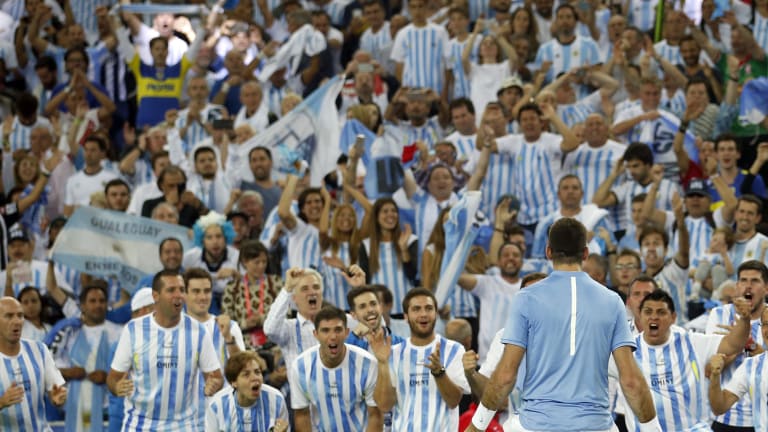We knew that this final, as most Cup finals do, would give two top players who hadn’t won any major titles this season a chance to finish with one. And those two players, Juan Martin del Potro and Marin Cilic, did everything they could—and a little bit more—to make it happen.
For most of the weekend, Cilic seemed destined to play the hero. In the opening rubber on Friday, he overcame an attack of nerves to close out Delbonis in a fifth set, after losing the third and fourth. On Saturday, Cilic and Ivan Dodig teamed to give Croatia the doubles point for the third straight time this year. Finally, on Sunday, Cilic went up two sets to love over Del Potro, a player who had beaten him in eight of their 10 meetings. Cilic served brilliantly, pushed Delpo behind the baseline, finished rallies with his down-the-line backhand, and played with more passion and aggression than his nice-guy personality normally allows.
While Delpo bounced back to win the third set, there was a moment at the end of the fourth when Cilic appeared ready to cross the finish line. Serving at 4-4, Delpo went up 40-0, but Cilic played three of his best points of the weekend to level it at deuce. That’s when chair umpire James Keothavong stepped in and inadvertently put a halt to Cilic’s momentum. Keothavong handed Del Potro his second time violation, which meant that he would lose his first serve on the next point. Delpo predictably went ballistic, and then just as predictably got fired up and began to play better—often, the worst thing that can happen to a player is to have his opponent get a time warning.
Unfortunately, that was the case with Cilic, as Delpo fired a 120-M.P.H. second serve for a winner, barked in Keothavong’s face, went on to hold, and broke to send the match to a fifth set. Now Delpo had the momentum, and he didn’t give it up. His 6-7 (4), 2-6, 7-5, 6-4, 6-3 win, in 4 hours and 53 minutes, was the first time he had come back to win from two sets down. It was also the perfect, tear-filled finish to a storybook comeback season for Del Potro.
